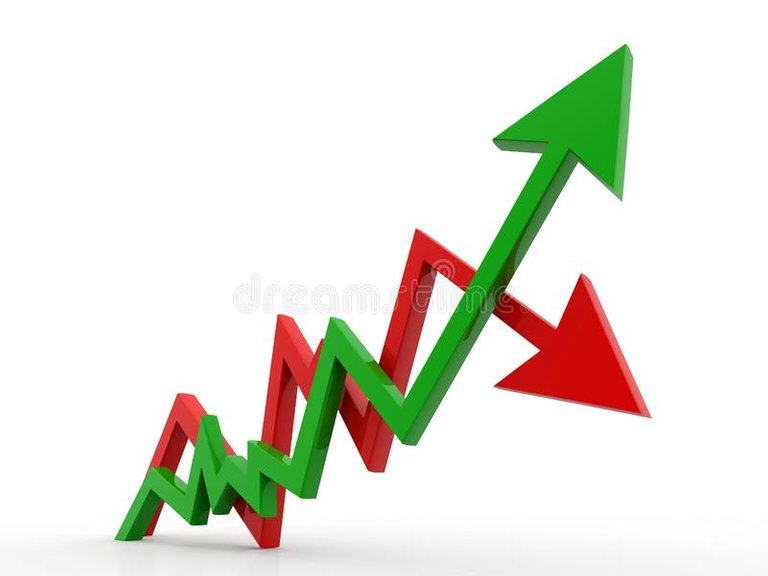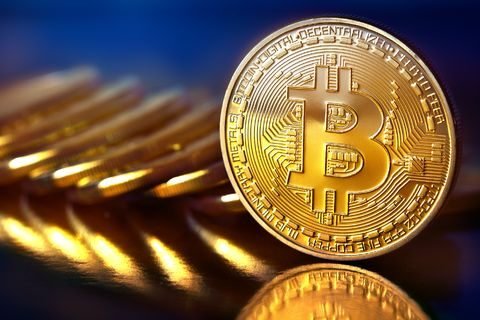Most have heard of hyper-inflation. This is when the annual inflation rate exceeds 50%. While it has not happened on a global scale, there are instances where it does take place. Presently, Venezuela is a country experiencing the effects.
Essentially, inflation is noticed in the increase in price of goods and services. When a product such as a gallon of milk goes from $2 to $3, we say it inflated by 50%.
Inflation is caused by too much money chasing too few goods and services. Many believe that this is a result of printing too much money yet that is too linear. Like all things with the economy, a holistic approach is needed since there are many variables that enter the picture. Supply, demand, wages, and affordability all play into this equation.
Of course, over the last 30 years, we are seeing technology becoming a bigger variable.

Deflation is the exact opposite. If we want, we can state that it is caused by too little money chasing too many goods and services. This could obviously result in the drop of prices.
People have an odd view of inflation and deflation. We are taught that inflation is bad. Thus, we believe, deflation is good. Oddly enough, economists mistakenly believe that deflation is bad.
The idea behind the hate of deflation is the belief that people will put off purchases knowing they will be less expensive down the road. When we are looking at discussions of this nature, it is best to ignore the theorists and academia (which economists are) and focus upon how the market truly answers the question.
If deflation is a bad thing since people will not purchase, how can we explain computers, televisions, and mobile phones? Everyone knows that each of these products will be less expensive a year or two from now while offer more features than the present models have. Yet, oddly enough, most everyone purchases these devices.
In fact, the epitome of this is the semiconductor. The basis for Moore's Law, we have see a halving in price every 18-24 months. This has been in place for more than 60 years.
Ironically, while economists will tell us that semiconductor purchases will be delayed, the industry has a CAGR of 14%. Not only is the industry not slowed, it grew at an annual rate of 14%, for decades.
The bottom line is that excess inflation or deflation is the problem. Throughout history, in the western world, deflation is rare. There were only a couple instances where we saw this take place. The best known was the Great Depression which saw deflationary pressures for a few years. Most recently, the Great Recession had a brief period of deflation, led by the rapid drop in oil prices.
This brings us to the concept of hyper-deflation. Few have heard this term because it is mostly theoretical. I cannot find an instance where this took place yet we could end up seeing it in the next decade or two.
From what I can garner, there are two potential factors which could cause this.

One is the impact of technology. With the radical advancement that we are seeing in this area, it is possible that the deflationary pressures mount to the point where prices are dropping like a rock. This will not necessarily be caused by other outside factors. Instead, we see so much progress and things evolving so quickly, that what was standard a year before is now passe. As AI and robotics expand, this could become a reality.
However, another factor is one that is not mentioned too often, especially in the cryptocurrency realm.
Many discuss Bitcoin as being the, as Jack Dorsey says, money of the Internet. If this is the case, we certainly will have hyper-deflation.
Consider the idea of Bitcoin being used for transactions and couple that with the cause of deflation. Deflation is essentially too little money chasing too few goods and services. Think about Bitcoin and the fact that it has a cap on the number of tokens. Bitcoinists tell us this is a good thing.
However, there is another factor to consider. With Bitcoin, a result of an increase in price will be that purchasing power is enhanced. This is good, right? From a growth perspective, not really. What essentially happens is that people do not spend, instead people opt to hold onto money believing that it will appreciate in value. Again, leaving theory aside, this is what we see in the market.
Ponder the idea that Bitcoin could 10x from the point it is at now. This is a level most who are favorable to Bitcoin would agree is reasonable. If that is the case, why would anyone spend any Bitcoin they have? Ultimately, it is going to be to buy 10x more than it is today.
A 50% increase in the price of Bitcoin each year is well within reason. From the present levels, this would put it at $14,000 in a year. After that, by mid 2022, we would see a price of $21,000. Following this further out, we see $32,000 in 2023, $48,000 in 2024, and $72,000 in 2025.
Certainly, this is not the most outrageous predictions for the price of Bitcoin. We are a long way from the forecast of $1 million BTC which some are predicting.
Source

Which brings us back to the money question. If Bitcoin is going to be used as money, how would it facilitate transactions when people are hoarding it? Without the ability to expand, the only other factor is price collapse. Businesses would have to drop the prices through the floor to pry Bitcoin from people's hands.
For this reason, I think it unrealistic to expect Bitcoin to be the main, or even dominant, form of money. Instead, the hyper-deflationary impact that Bitcoin exerts will be offset by the overall inflationary pressures that come from cryptocurrency in general. People will have the opportunity to collaborate in thousands of different tokens.
By the end of this decade, there will be no shortage of money. Couple that with the advancement into the digital world, and we will see no shortage of places to spend that money.
This is why abundance is going to be upon us.
If you found this article informative, please give an upvote and rehive.

gif by @doze

Posted Using LeoFinance
We already have hyper-deflation. Just use Bitcoin as your unit of account. There you have it.
Deflation is not a problem for a money spending. We are monkeys. Monkey want banana right away, not 2 bananas in a two year.
For BTC problem is a scaleability. It just cant handle enough transactions for everyday use. It's a digital gold, not a digital cash.
Academia fails in practical world and it is no surprise.
Only issue is that if people do not want to spend then how it will spread?
Exactly. And that is what happened with gold. It is now bought and held.
Anything that primarily is speculated upon will only be sold if people are pessimistic about the asset. If Bitcoin is expected to 10x, nobody will spend it.
And it being scarce would mean that people will be able to force the price up by holding.
Posted Using LeoFinance
Bitcoin IOU's :) Spend the IOU's save the Bitcoin. XRP could solve this but they sold out to the banks years ago.
Posted Using LeoFinance
How do you explain then the sideways movement of BTC since months? Nothing happening in BTC-price. If everybody thinks BTC will go up, the price should then follow (because less people would sell vs. buy).
So apparently people are selling. Predominantly the miners? No clue. We will know only after the last Bitcoin is mined what the true equilibrium will be.
You might check out (probbly have already) the rising star AMPL (https://www.ampleforth.org/), a coin that wants exactly this - to uncouple from Bitcoin, but not as a stable coin but as a coin linked to actual purchasing power!
Bitcoin reached its maximum transaction rate a few years ago. Fees skyrocketed. Suddenly use dropped. So demand for use as something to spend with went down. It is still fueled by speculation. The market has been trying to find its new value.
I am very much looking forward to the time when we can spend our crypts anywhere without harassment from regulatory bodies.
With each passing year it becomes evident that digital currencies will be the future and we even have examples like Japan wanting to convert its Yen currency into a digital asset.
Posted Using LeoFinance
Maybe we will have hyper deflation in some sectors (technology etc) accompanied by and partly due to inflation in others (ie food) Unfortunately the necessities of life like clean food and water haven’t been improved much so far by our technological growth. Seems like a poor trade to me my friend.
"The bottom line is that excess inflation or deflation is the problem."
@taskmaster4450 this statement of yours says it all,great insights from you...
Posted Using LeoFinance